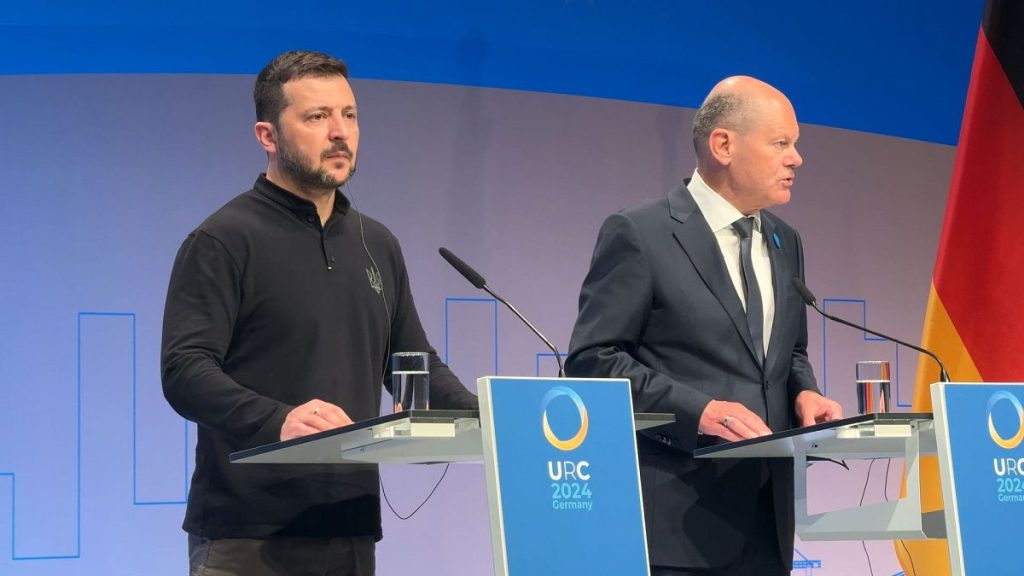The Ukraine Recovery Conference in Berlin focused on the need to support Ukraine’s critical infrastructure ahead of a cold winter, as President Zelenskyy appealed for help in rebuilding and decentralising the country’s energy infrastructure. The increased Russian attacks on energy networks have led to warnings of possible freezing in the winter due to a lack of electricity. The United Nations Development Programme (UNDP) is already assisting Ukraine in preparing for the winter by providing support for energy systems, power supplies, and possibly installing generators in schools to address the lack of electricity. The World Bank has committed €460 billion to aid Ukraine’s reconstruction efforts, with a focus on renewable energy sources to address both the immediate energy crisis and long-term development.
The World Bank’s Chief Operating Officer, Anna Bjerde, highlighted Ukraine’s potential in renewable energy sources and discussed the importance of developing these sectors for long-term decarbonisation efforts. The conference saw the signing of over 110 international agreements, contracts, and memorandums, reflecting significant global interest in investing in Ukraine. The commitments made at the conference totalled over €16 billion, including investments in the Ukraine Facility, energy assistance packages, a SME Resilience Alliance, and various other agreements aimed at supporting Ukraine’s recovery and development.
The Ukraine Recovery Conference took place just before the peace summit in Switzerland, where Russia was not invited. The summit is seen as a crucial opportunity for Ukraine to garner support for President Zelenskyy’s ten-point peace plan and demonstrate broad international backing for the country. German Chancellor Olaf Scholz called the summit a “next step, but not the last one” and emphasized the importance of international support for Ukraine’s peace efforts. The event will bring together representatives from nearly 90 countries and organisations, showcasing widespread support for Ukraine’s peace agenda.
At the conference, the UNDP administrator Achim Steiner emphasized the importance of access to electricity for survival, especially during the harsh Ukrainian winter. The organization has been working to reconnect over half a million Ukrainians who have been affected by the deliberate destruction of the country’s energy infrastructure. The conference also focused on the potential of renewable energy sources in Ukraine and the need to address the immediate energy crisis while also planning for long-term sustainability and decarbonisation efforts in the country.
In addition to financial commitments and aid packages, Germany announced the provision of Patriot missiles for Ukraine, demonstrating its support for the country’s security and defense efforts. The agreements signed at the conference cover a wide range of areas, including skills development programs, humanitarian demining, risk insurance agreements, and partnerships with German and international organizations. These agreements reflect a strong global interest in supporting Ukraine’s recovery and development efforts, with a focus on addressing immediate needs while planning for long-term sustainability and growth.
Overall, the Ukraine Recovery Conference in Berlin highlighted the urgent need to support Ukraine’s critical infrastructure ahead of a challenging winter, with a focus on renewable energy sources and long-term sustainability. The event resulted in significant financial commitments and aid packages, as well as agreements covering various sectors to support Ukraine’s recovery and development efforts. The conference set the stage for the upcoming peace summit in Switzerland, where Ukraine aims to gather international support for its peace plan and demonstrate broad backing for its agenda.


